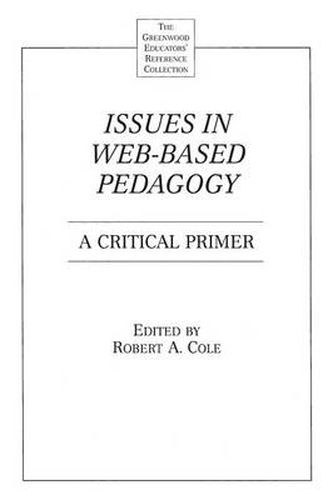Readings Newsletter
Become a Readings Member to make your shopping experience even easier.
Sign in or sign up for free!
You’re not far away from qualifying for FREE standard shipping within Australia
You’ve qualified for FREE standard shipping within Australia
The cart is loading…






There has been an explosion of Web-based courses in higher education. Aiming at an interdisciplinary audience, the contributors draw upon diverse philosophical and empirical backgrounds to make claims about Web-based pedagogy. Among the points they raise is the concern that education is more easily commodified through Internet technologies, implying that traditional faculty roles in teaching (and research) are at risk. Moreover, current understandings of what it means to be a teacher or a student are undergoing redefinition as a result of these new distance-learning technologies.
The contributors note that Web-based pedagogy is associated with sound instruction when particular strategies are adopted. As a corollary, this form of teaching is least effective when attempts are made to directly translate traditional styles of teaching. Political, social, and economic interests are competing to shape the direction that online education will take. The authors argue that opportunities exist for administrators and faculty to define the terms under which Web-based learning will occur in their institutions.
$9.00 standard shipping within Australia
FREE standard shipping within Australia for orders over $100.00
Express & International shipping calculated at checkout
There has been an explosion of Web-based courses in higher education. Aiming at an interdisciplinary audience, the contributors draw upon diverse philosophical and empirical backgrounds to make claims about Web-based pedagogy. Among the points they raise is the concern that education is more easily commodified through Internet technologies, implying that traditional faculty roles in teaching (and research) are at risk. Moreover, current understandings of what it means to be a teacher or a student are undergoing redefinition as a result of these new distance-learning technologies.
The contributors note that Web-based pedagogy is associated with sound instruction when particular strategies are adopted. As a corollary, this form of teaching is least effective when attempts are made to directly translate traditional styles of teaching. Political, social, and economic interests are competing to shape the direction that online education will take. The authors argue that opportunities exist for administrators and faculty to define the terms under which Web-based learning will occur in their institutions.